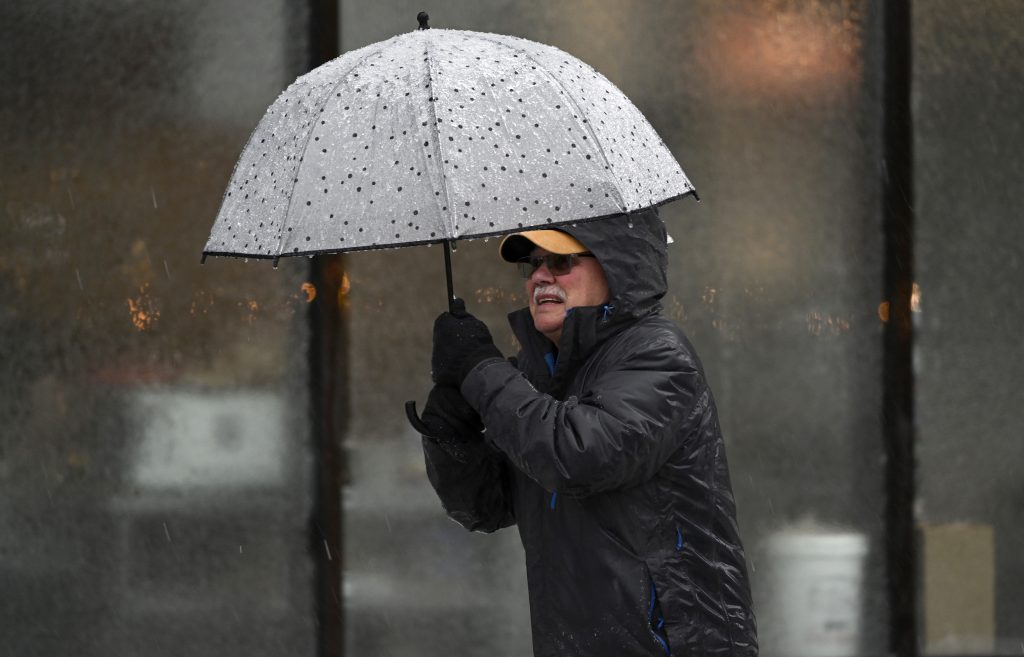The unsolved murders that weigh on veteran homicide cop facing retirement
Posted January 14, 2019 4:22 pm.
Last Updated January 14, 2019 4:51 pm.
This article is more than 5 years old.
He’s one of Toronto’s top homicide detectives, and has investigated some of the city’s most disturbing murders. But there is still one unsolved case from a decade ago that keeps Gary Giroux coming back to the crime scene.
The veteran detective says he still sometimes visits the parking lot where Oliver Martin and Dylan Ellis were gunned down back in June of 2008, hoping that something will help him find their killer.
Martin, 25, and Ellis, 26, were sitting in a Range Rover at Richmond Street West and Walnut Avenue after watching a basketball game at a friend’s home when a gunman approached and opened fire. Detectives were never able to determine a motive, and over a decade later, a suspect has never been named.
“I just want to see somebody held accountable,” says Giroux.
The homicide detective will be retiring in a few weeks, bringing to an end an almost 40-year-long career with Toronto police – 22 of which were spent in the homicide squad.
Giroux calls those 22 years the high point of his career, but says the unsolved crimes are the lows that will stick with him.
“They kind of nag at you, you know?”
Another unsolved case that the veteran cop says weighs on him is the killing of Paulson Chellakudam and Suzette Augustin inside a travel agency near Jane St. and Wilson Ave. in 2004.
Augustin walked into the agency where a knifepoint robbery was in progress, and was killed in what Giroux says was a very violent scene.
“All she was doing was dropping off an envelope with a cheque inside and walked right into the middle of it,” says Giroux. “That one really bothered me.”
The Toronto police officer says he has handled over 200 homicide cases, and is proud of the fact that many ended in convictions, including the stabbing death of Nighisti Semret.
Semret was walking home from a night shift at a downtown hotel on a rainy October morning in 2012 when she was attacked in a Cabbagetown laneway.
The mother of three was an immigrant from Eritrea.
“She came here with very little to make a better life for herself,” says Giroux. “And unfortunately (was) killed in a very violent way by a coward who attacked her while she walked home by herself.”
Adonay Zekarias was later sentenced to life in prison with no chance of parole for 25 years.
“We still don’t definitively know why” he did it, says Giroux.
Zekarias was also later found guilty of killing and dismembering his girlfriend, 28-year-old Rigat Ghirmay.

Giroux says many members of the Cabbagetown community reached out to thank him once they charged Zekarias. “I think his apprehension gave a lot of people peace and comfort.”
Giroux handled several high-profile investigations over the years, including the task of looking into whether there was any criminality on the part of then-Toronto Mayor Rob Ford, or his office.
“I dealt with it in exactly the same way,” as other investigations, says Giroux.
The officer says he concluded that, after hundreds of hours of surveillance and investigation with a team from the professional standards unit, Ford was “consorting with known and active criminals. These were people who were identified during [Project] Traveller as being violent members of the community who had victimized many people.”
But the investigation did not reveal any actions on the part of Ford that warranted an arrest.
Another political drama Giroux found himself at the centre of was the mass arrests following the protests at the G20 summit in 2010.
It was “like nothing that I had ever experienced before,” says Giroux. Leading a task force, and working with an “overwhelming amount” of video evidence, Giroux says they laid hundreds of charges that he thinks “did the city proud.”
Vancouver officials would later call him for advice after rioting broke out in their city after the Canucks lost the Stanley Cup final in 2011.
Giroux will wind down his work in the coming weeks – fielding calls from the families of victims looking for case updates, making court appearances and passing on what he has learned to younger officers.
“Stay positive,” says Giroux. “I tell them ‘remember you’ve got to go home to your families at the end of the day.’”
“If you don’t have that pillar at home, then you’re going to be lost very quickly.”
Giroux credits his wife with keeping him grounded. “I give her all the credit for that,” he says.
Hired by Toronto police in 1979 when he was only two weeks out of high school, Giroux says he hasn’t figured out what’s next for him, but one thing is certain.
“It’ll certainly not involve anything on call. I can 100 per cent guarantee you that. I don’t want to be yanked out in the middle of the night anymore.”
But he adds, “It was a great run for me. I’ll miss it.”








